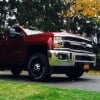-
Similar Content
-
- 2 replies
- 2,843 views
-
- 41 replies
- 4,104 views
-
14-18 silverado power heated/cooled seats retrofit HELP
By Lael Howard,
- Power heated/cooled seats
- Heated seats
- (and 22 more)
- 6 replies
- 2,165 views
-
- 8 replies
- 3,795 views
-
- 19 replies
- 2,829 views
-
-
Recently Browsing 0 members
- No registered users viewing this page.
-
Forum Statistics
247.3k
Total Topics2.6m
Total Posts -
Member Statistics
-
Who's Online 5 Members, 0 Anonymous, 618 Guests (See full list)
















Recommended Posts
Archived
This topic is now archived and is closed to further replies.